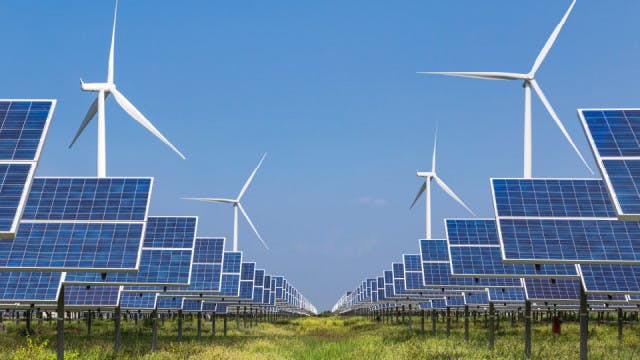Can Blockchain Technology Improve Environmental Sustainability?
Published on
January 22nd, 2021
Share
Environmental sustainability is one of the most significant issues on Earth. We live in a modern, consumerist, and mostly urban world that requires the processing of many natural resources every day. Each year, we use more resources than the Earth can naturally replenish.
According to the United Nations, the Earth cannot keep up with human consumption, and the "ecological foundations of society" are in danger. Unless we drastically cut carbon emissions, improve water management, restore and protect nature, and reduce pollution, we can expect to start experiencing negative consequences.
Although environmental sustainability is a global problem, the effects of increased consumption are felt hardest by the world's poorest countries. Climate change is widening worldwide inequality and putting developing countries on a path to becoming poorer.
Unfortunately, our beloved Bitcoin has its environmental impact issues, but that is a topic for another day. Today, we are focusing on how blockchain technology can promote sustainability through streamlining supply chains.
What is the biggest challenge facing environmental sustainability?
According to economists, climate change is the result of multiple market failures. The largest of these market failures is climate change costs not being reflected in the prices of goods and services that generate greenhouse gases.
But how do we keep track of the environmental costs associated with the manufacturing and distribution of goods and services? A promising solution is the application of blockchain technology in supply chains.
Blockchain technology can promote sustainability
You may have heard of blockchain technology because it is best known as the underlying technology behind bitcoin and other cryptocurrencies. A blockchain is a digital ledger of transactions distributed across many computers around the world. It is used to manage and record transactions. Data from these transactions are put into blocks. Each block contains data from the one before it, creating a chain. A block on the chain is virtually impossible to alter or destroy, meaning that all data captured in the blockchain is permanent and verifiable.
In the cryptocurrency industry, we are used to the blockchain being used to verify financial transactions, but that is only one of its use cases. Many are starting to discuss blockchain technology's potential to improve environmental sustainability due to its ability to promote transparency.
Since blockchain technology provides a verifiable and immutable record of who buys what from whom, then it can be used in supply chains to show a product's journey from raw material suppliers to producers, wholesalers, and retailers. At each stage in a product's journey, a new permanent block of information is created.
This revolutionary technology can help sustainability efforts in three main ways: transparency, traceability, and accountability.
Transparency
Blockchain technology provides maximum transparency with each transaction. Because a block cannot be altered or changed, the data within it can be trusted.
Many environmentalists see a circular economy as a solution to fight the effects of climate change. A circular economy focuses on the three Rs of sustainability; reducing materials and waste, reusing products, and recycling materials. From this perspective, products and services are changing hands in a closed-loop, meaning that nothing goes to waste so that the Earth's natural resources can be better preserved.
Traceability
In addition to the transparency, blockchain technology provides traceability. You can follow a product's lifetime from its creation to its ultimate disposal. Blockchain technology can ensure that recyclable and compostable materials are disposed of correctly.
Accountability
Suppose all transactions that take place in a supply chain are transparent and traceable. In that case, it will be easier to hold corporations accountable for their actions. Corporations will also report their environmental impacts in an exact, concise, and accurate way with data backed up by the blockchain.
Blockchain benefits supply chains
Blockchain technology can radically alter the way business transactions take place. From the supply chain perspective, the transparency and traceability offered through blockchain technology help ensure efficient transactions. It can also help promote food safety, efficient recalls, and the assurance of ethical trading partners. It is also inexpensive to use and implement, and offers a global network that provides secure information available instantly.
Blockchain streamlines supply chains through all stages: production, collection, transportation, arrival, and disposal. Suppose big corporations like Amazon and Walmart streamlined their supply chains in this way. In that case, they can optimize processes, come up with innovations, and increase productivity. Through this lens, the utilization of blockchain technology would also reduce operating costs and reduce waste.
Obstacles to implementing blockchain technology
While blockchain sounds like the dream solution to making supply chains more sustainable, some limitations currently hinder its efficacy.
Blockchain is still a relatively young technology, and implementing it in supply chains worldwide will take time and effort. A manufacturer must convince their suppliers to sign onto the blockchain network. Then those suppliers will have to extend that adoption to the next lower level.
Another limitation to this technology is its dependence on the internet. Many supply chains begin in developing countries, which provide much of the raw materials required to produce products. A blockchain's ledger is digital and managed by computers. Developing countries lack the infrastructure to provide high-speed internet or digital accessibility to participate efficiently. So any blockchain solution must be mobile-friendly and extremely accessible across multiple platforms.
Overall, blockchain technology provides a promising solution for streamlining supply chains and promoting environmental sustainability through transparency, traceability, and accountability. I’m hopeful that as the technology advances, more and more major corporations will begin to implement it in their policies and procedures.
Share

